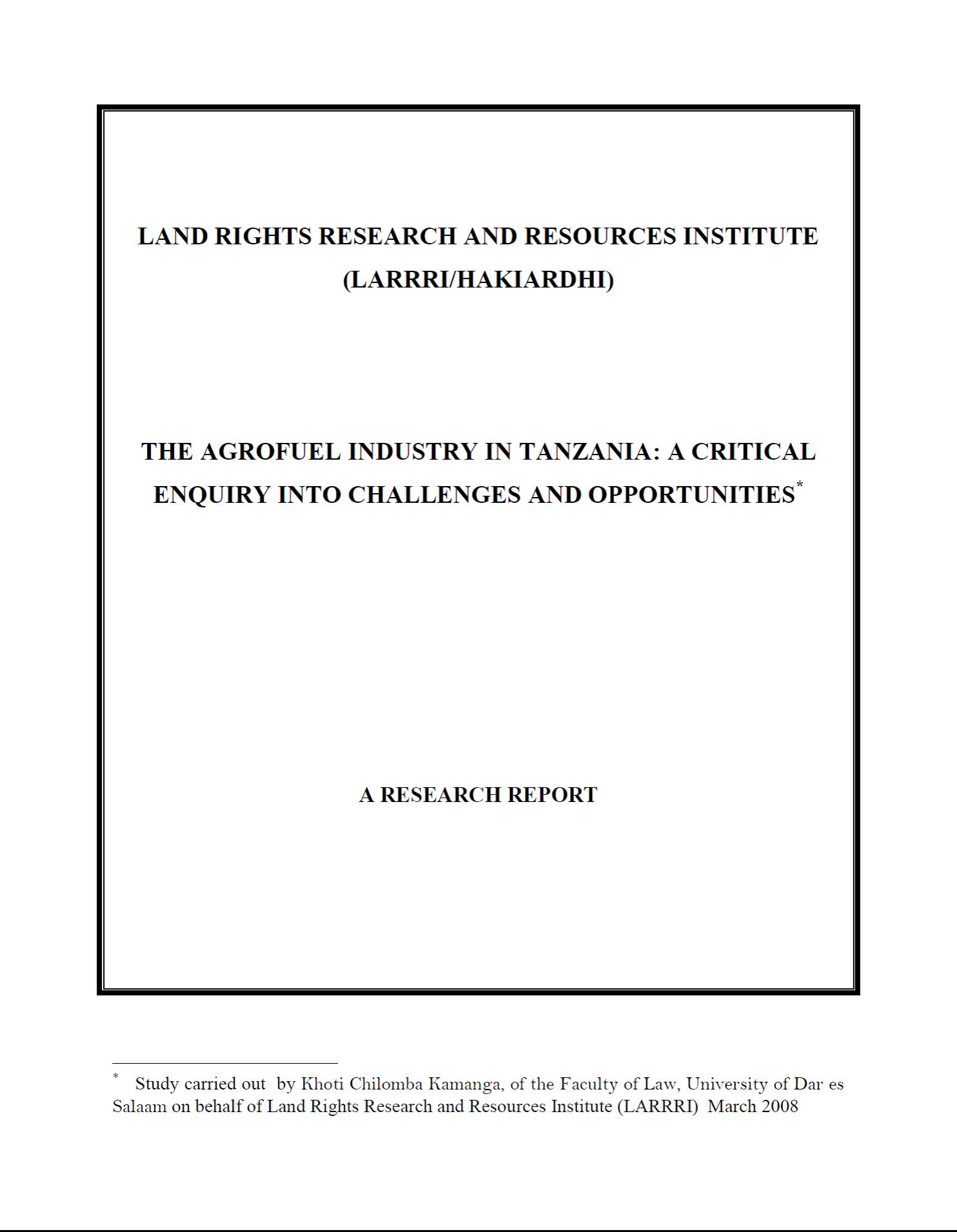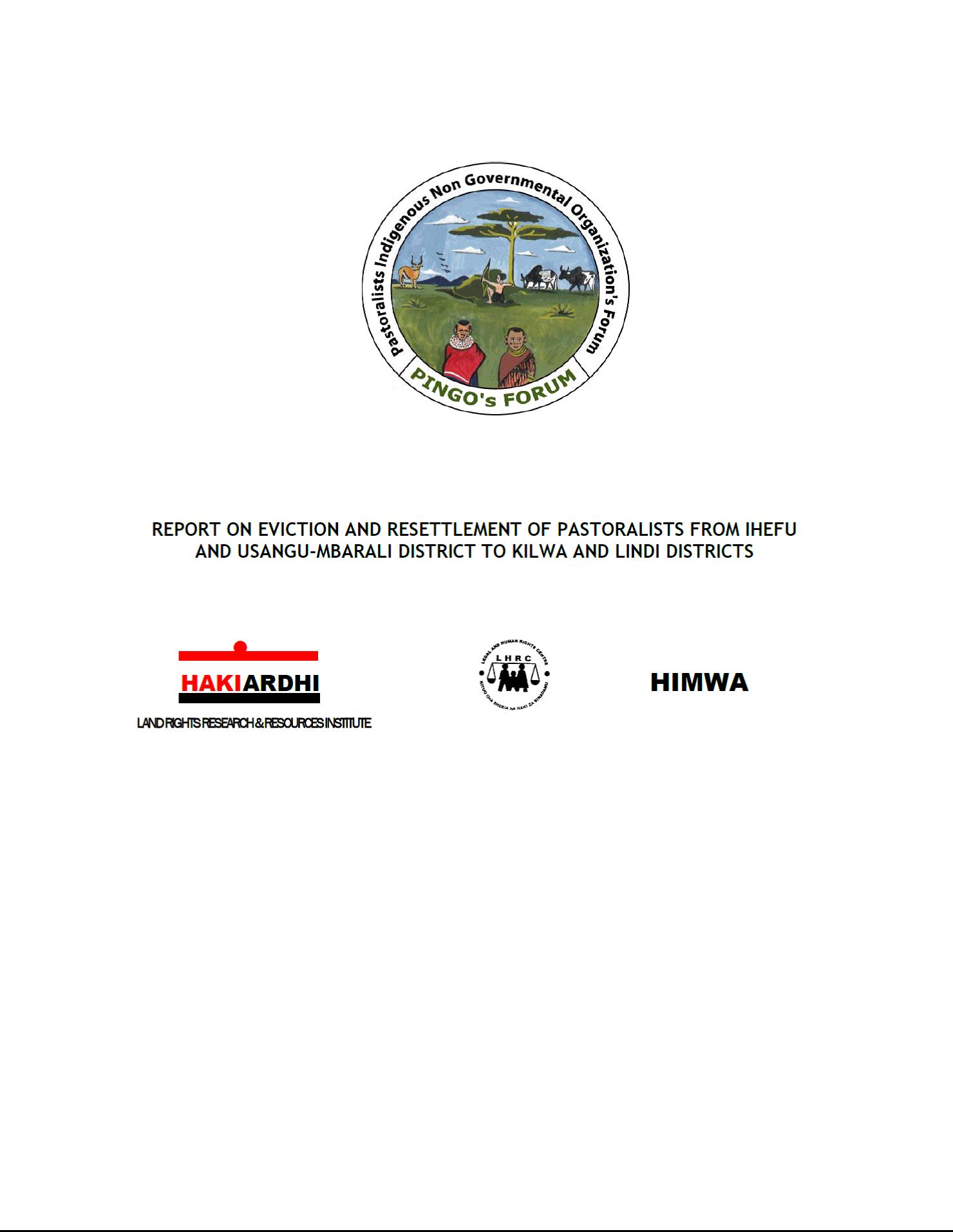Focal point
Location
The Land Rights Research & Resources Institute was founded in 1994 and registered as a non-governmental not-for profit company limited by guarantee under the Companies Ordinance, Chapter 212 of the laws of Tanzania.
The Institute was established out of the need to generate and sustain a public debate and participation, particularly where it matters in villages on issues of land tenure.
It is the institute’s belief that such debate will be better informed if. There is a recognition of indigenous systems of land tenure knowledge and experiences, a will and capacity to research into these and thus generate more systematic knowledge of the same; and an institutional arrangement independent of the state system to generalize local knowledge and experiences horizontally between and among village committees thereby producing a corpus of a truly national system of knowledge on land relations.
VISION
Land Rights Research and Resources Institute envisages a socially just and equitable land tenure system in which all groups in the society and especially the rural based small producers are guaranteed security of tenure, access and ownership to land and other means of their livelihood.
MISSION
HAKIARDHI's mission is to promote and ensure realization of the rights to land of about eighty percents of the rural based communities who are mainly small land holders and producers.
Members:
Resources
Displaying 71 - 75 of 85The Agrofuel Industry in Tanzania: A Critical Inquiry into Challenges and Opportunities
Biofuel development in Tanzania places at stake 4 highly strategic national resources: land, water, forests and labour, and for generations to come. This alone is sufficient reason for the Tanzanian general public and rural communities in particular, to wrestle back the initiative and seek direct engagement in determining the best way forward for the nation.
Report on Eviction and Resettlement of Pastoralists from Ihefu and Usangu-Mbarali District to Kilwa and Lindi Districts
This study is focused on the effects of the eviction process of pastoralists from Mbarali to Lindi Rural and Kilwa Districts in Lindi Region. The study sampled six villages out 15 villages in Lindi Rural and Kilwa districts. The study employed semi-structured interviews and focus group discussions with district, village authorities, host communities and migrating pastoralists in selected villages.
Report on Eviction and Resettlement of Pastoralists from Ihefu and Usangu-Mbarali District to Kilwa and Lindi Districts
This study is focused on the effects of the eviction process of pastoralists from Mbarali to Lindi Rural and Kilwa Districts in Lindi Region. The study sampled six villages out 15 villages in Lindi Rural and Kilwa districts. The study employed semi-structured interviews and focus group discussions with district, village authorities, host communities and migrating pastoralists in selected villages.
Report on Eviction and Resettlement of Pastoralists from Ihefu and Usangu-Mbarali District to Kilwa and Lindi Districts
This study is focused on the effects of the eviction process of pastoralists from Mbarali to Lindi Rural and Kilwa Districts in Lindi Region. The study sampled six villages out 15 villages in Lindi Rural and Kilwa districts. The study employed semi-structured interviews and focus group discussions with district, village authorities, host communities and migrating pastoralists in selected villages.
Report on Eviction and Resettlement of Pastoralists from Ihefu and Usangu-Mbarali District to Kilwa and Lindi Districts
This study is focused on the effects of the eviction process of pastoralists from Mbarali to Lindi Rural and Kilwa Districts in Lindi Region. The study sampled six villages out 15 villages in Lindi Rural and Kilwa districts. The study employed semi-structured interviews and focus group discussions with district, village authorities, host communities and migrating pastoralists in selected villages.



